Passerelle supplementary examination: The experience report by Doris Gehring, course director and lecturer at the Minerva School Zurich, shows the path to studying at university, FIT or UTE with a Federal Vocational Baccalaureate or Specialized Baccalaureate.
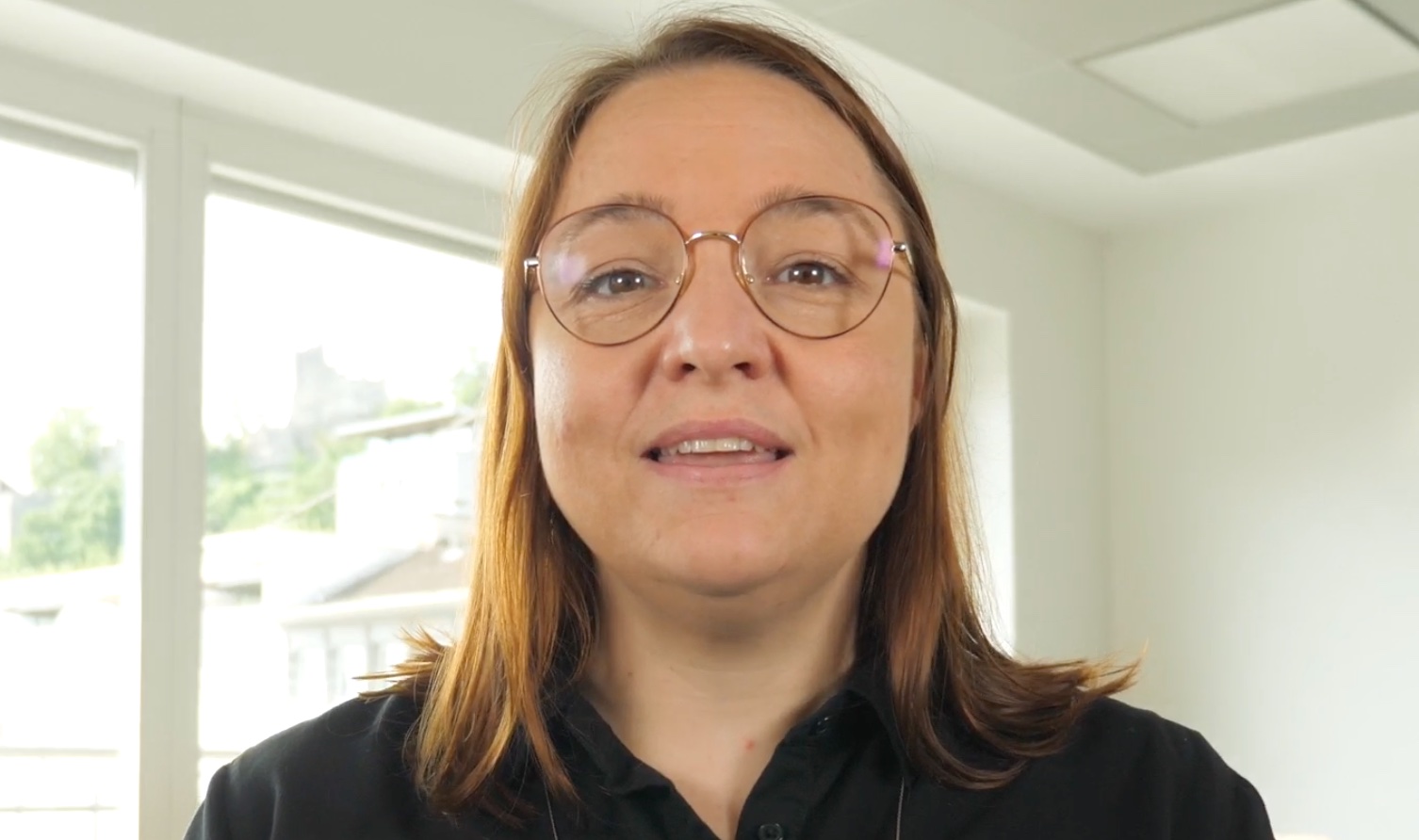
Please tell us something about yourself and your current role.
My name is Doris Gehring. At the moment I am the course director for BM2 and Passerelle at the Minerva School in Zurich. I also took the second educational path myself. After completing an apprenticeship as a structural draughtswoman, I decided to study history and German language and literature at university.
Who is the target group of the Passerelle?
The Passerelle enables people who have completed a vocational or technical baccalaureate to enter Universities (UTE) and Universities of Applied Sciences (UH such as Uni and FIT). This means that the Passerelle supplementary examination is aimed at professionals who wish to complete a university degree course. This second educational pathway is particularly suitable for committed individuals who are well aware of the intensity of this educational pathway. Thanks to this intermediate training, the doors to an academic world and thus to new career prospects open up for these people.
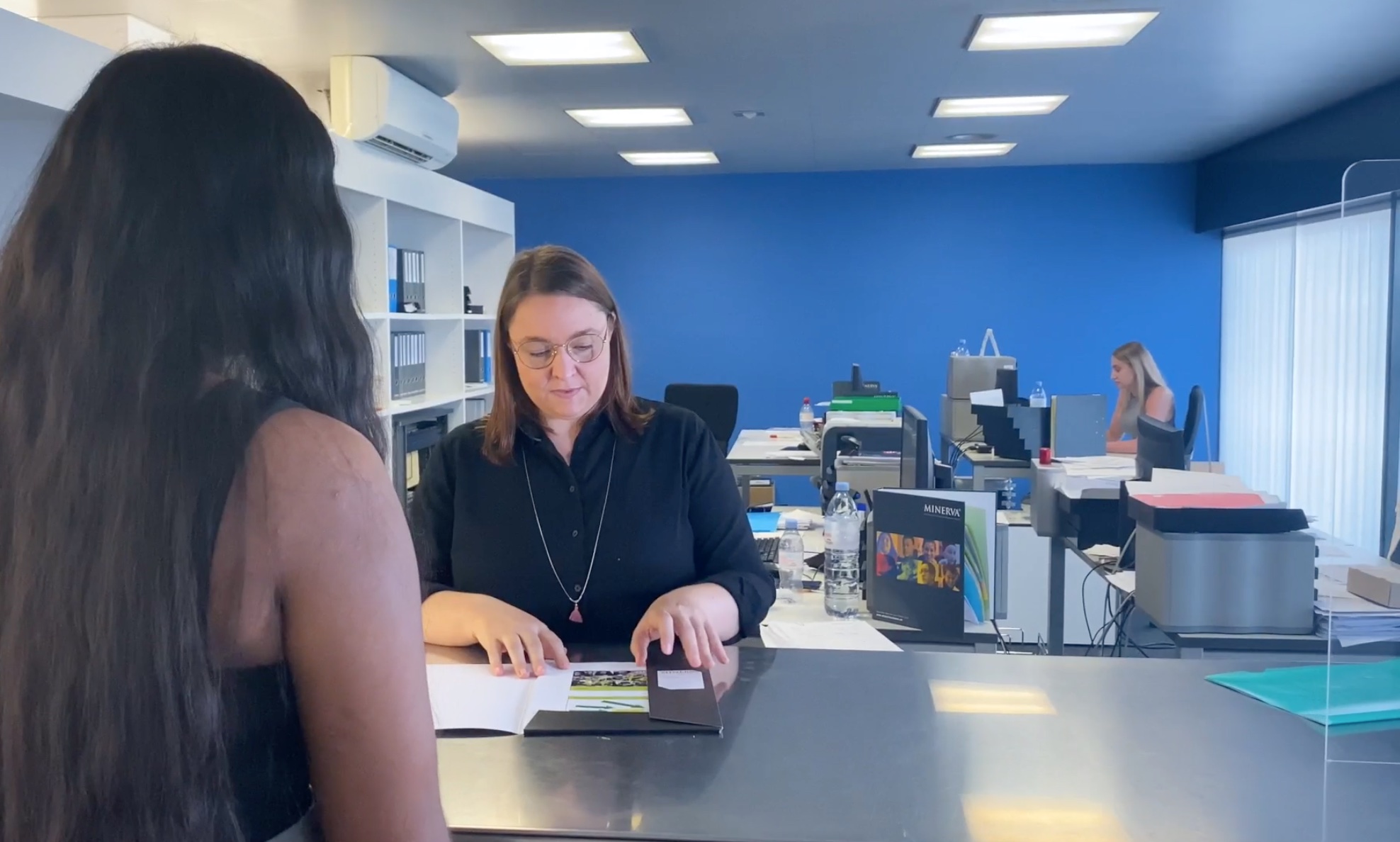
What are the admission requirements?
Persons who can present a vocational baccalaureate certificate or a specialized baccalaureate certificate are admitted to the Federal Passerelle supplementary examination. The professional field of the certificate is irrelevant. There is no limit to the average grade and no minimum age requirement, as the federal examination is open to all learners who have one of the two required certificates.
What are the learning contents of a Passerelle?
In the Passerelle at the Minerva School, we prepare candidates for the supplementary examination in German, English, mathematics and the collective subjects of natural sciences and social sciences. There are no different subject areas for the Passerelle, you simply have to have completed five subjects by the end. For example, you can choose between French, Italian or English as a foreign language. We have opted for English here, as it has been shown that many young people have the best command of this language and that this language is also the most interesting for further development.
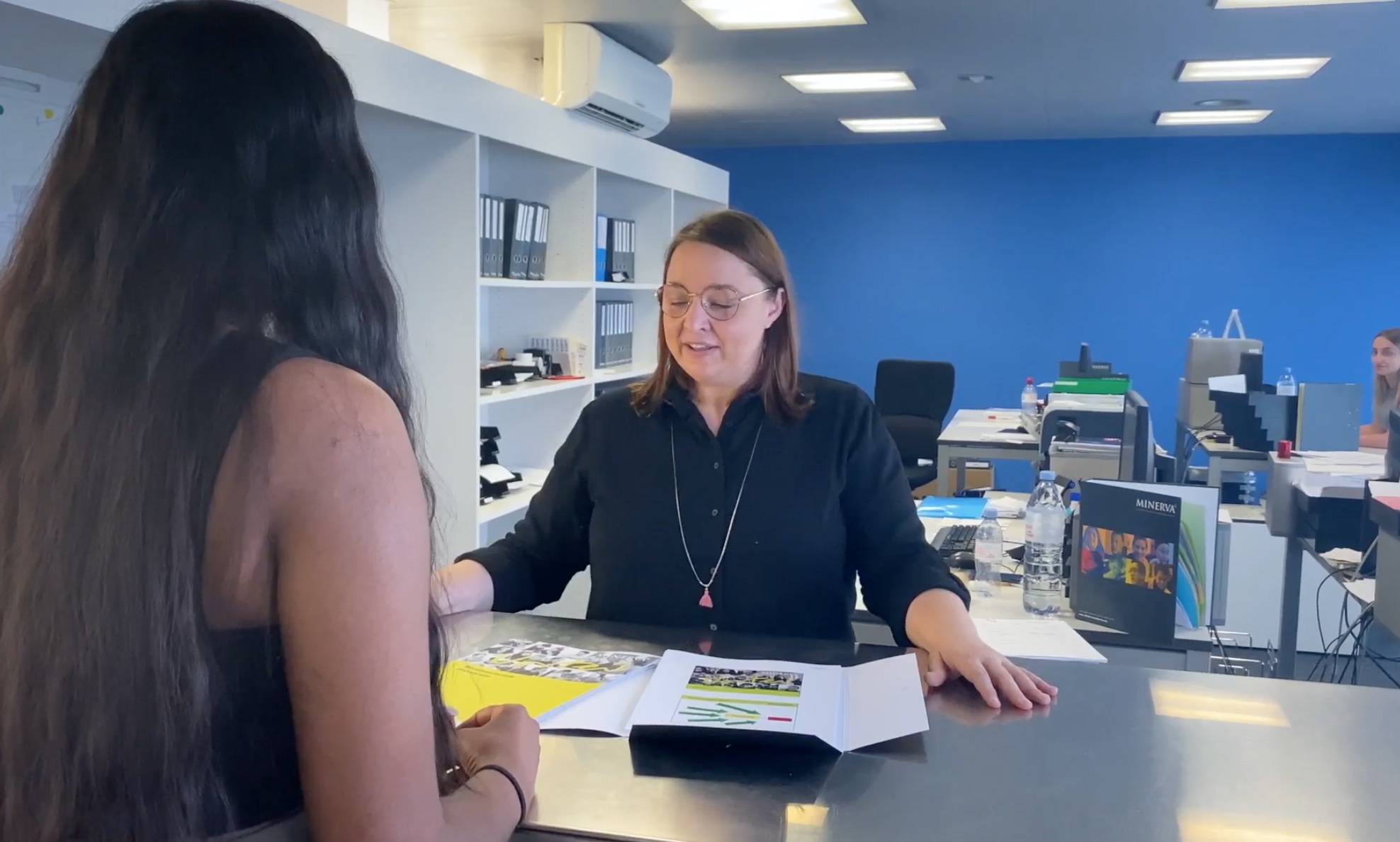
What qualification is awarded after the supplementary examination?
If you successfully pass the Passerelle supplementary examination, you will receive an additional diploma which, together with the Federal Vocational Baccalaureate or Specialized Baccalaureate, entitles you to study at Swiss Universities, FIT or a University of Teacher Education. This is a Swiss solution and is therefore only valid in Switzerland and is not recognized abroad.
Isn't that the same as the adult school-leaving certificate?
The Passerelle is not the same as the adult Matura. This is because the adult baccalaureate covers and tests the entire baccalaureate subject matter. The supplementary examination also takes into account professional background and experience and these are taken into account in the admission requirements. The adult baccalaureate does not require a vocational baccalaureate or specialized baccalaureate and takes longer - or in any case covers more subject matter.
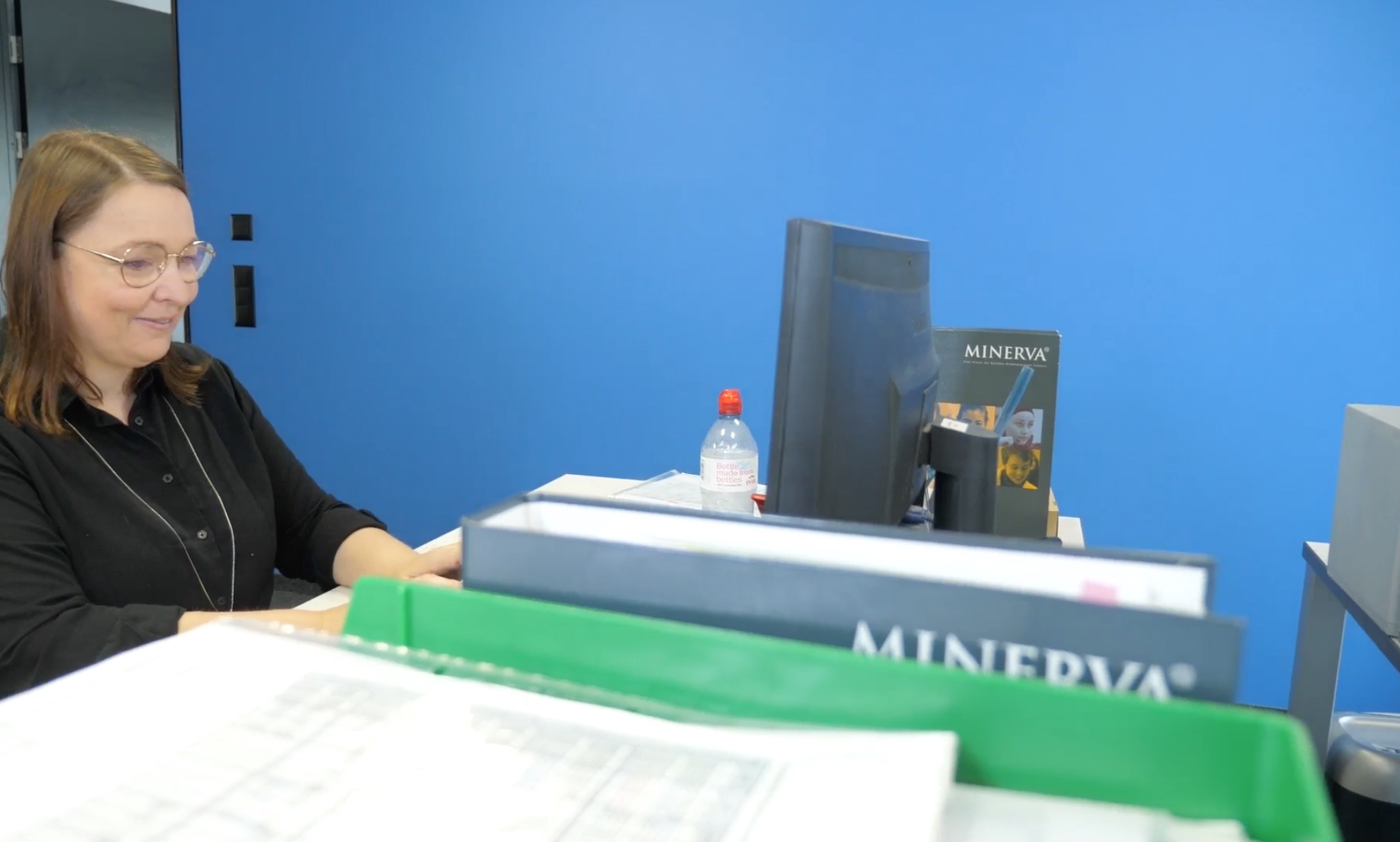
How long does the Passerelle take?
The preparatory course for the Passerelle supplementary examination at the Minerva School Zurich lasts one year full-time. This allows participants to prepare for this federal examination at their leisure and within the given guidelines. We can accompany the students throughout the week in their learning process and provide targeted support. We also work on learning techniques and methods that will later be in demand at university. Other providers of Passerelle preparation also offer it on a part-time basis - for example, our sister school AKAD. This form requires a large amount of self-study.
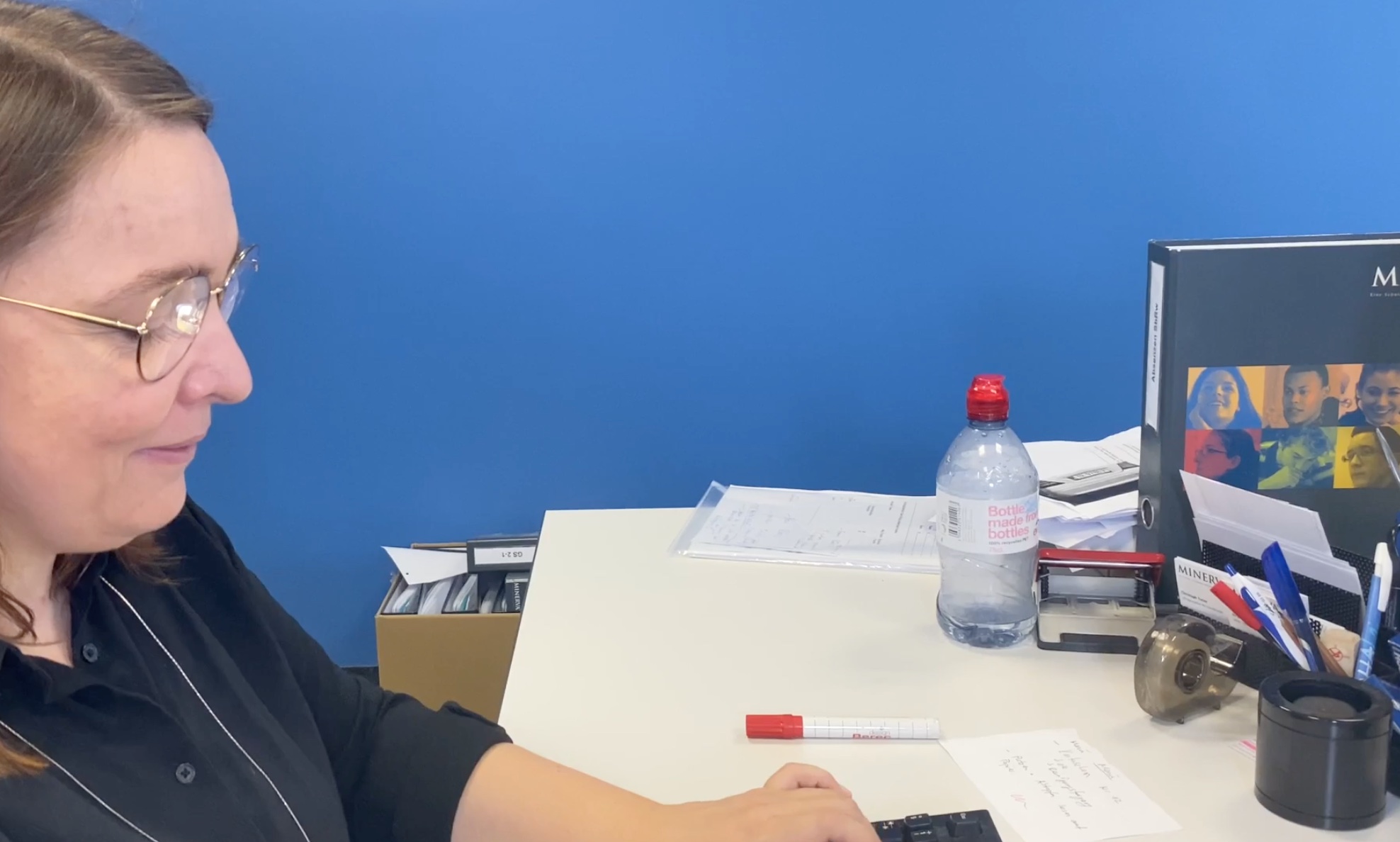
How exactly does a final examination work?
The final examination of this preparation course is a federal examination in the form of the Passerelle supplementary examination. This means that you register on a platform and meet with all other exam participants from Switzerland at one location for the exam. This location changes regularly and can be in Ebikon LU, Bern or Zurich. Two weeks of intensive exams are written there using an individualized exam plan. The written exams are taken in the first week and the oral exams in the second week.
What is the success rate for the Passerelle?
The pass rate for the Federal Passerelle examination varies from time to time. In 2020, it was 70 percent and in previous years around 60 percent. At the Minerva School, we are between 70 and 80 percent, depending on the composition of the class and the motivation of the participants.
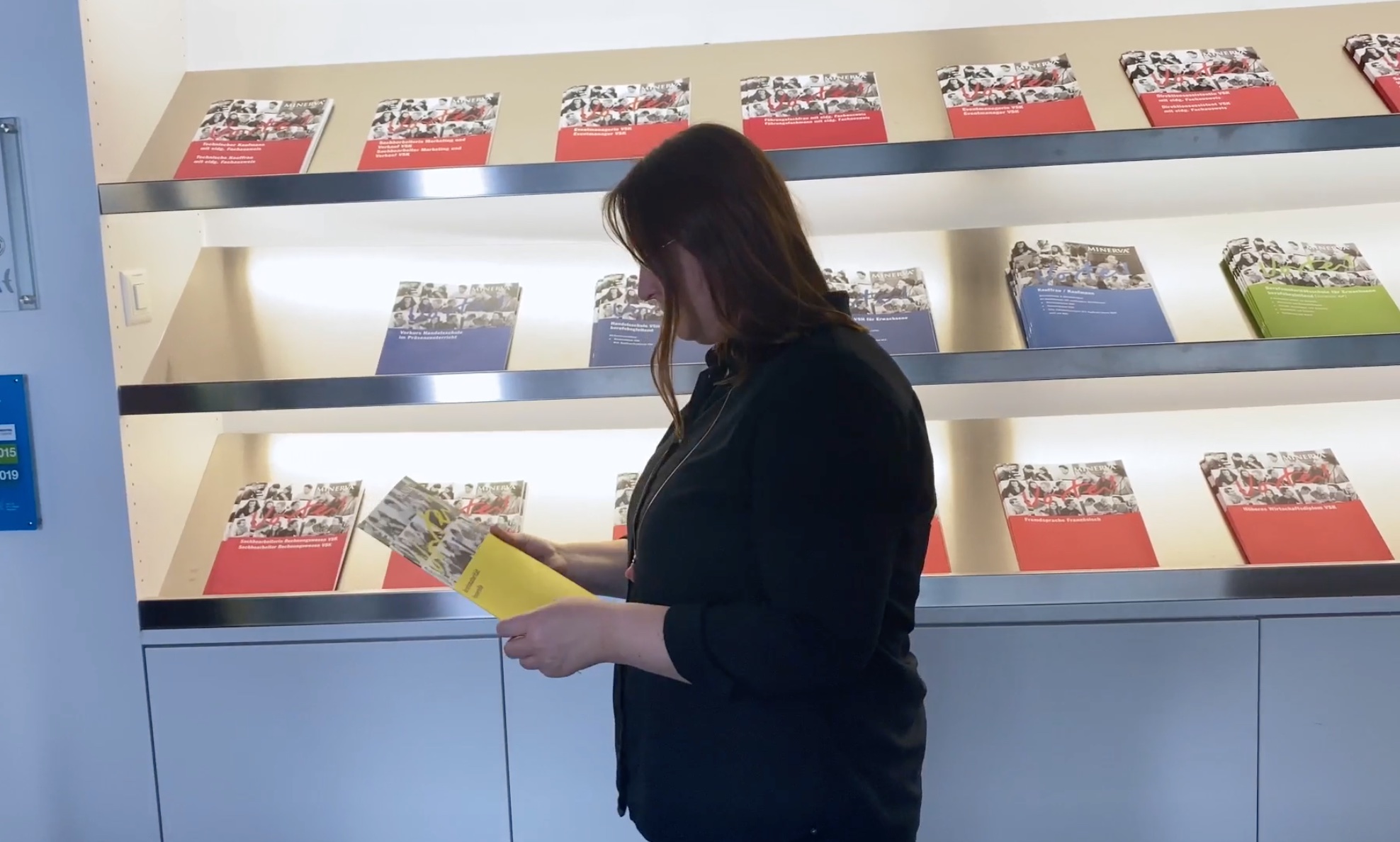
How much time must be invested in exam preparation?
This varies depending on the prerequisites for the Passerelle exam preparation, as not every vocational baccalaureate or technical baccalaureate has the same catalog of subjects. We spend around 30 lessons a week at school throughout the year. There are also around 15 to 20 additional hours of study per week. This is very intensive. Experience shows that the students are still very motivated at the beginning and then the intensity starts to increase. Then the students have to cram and work hard.
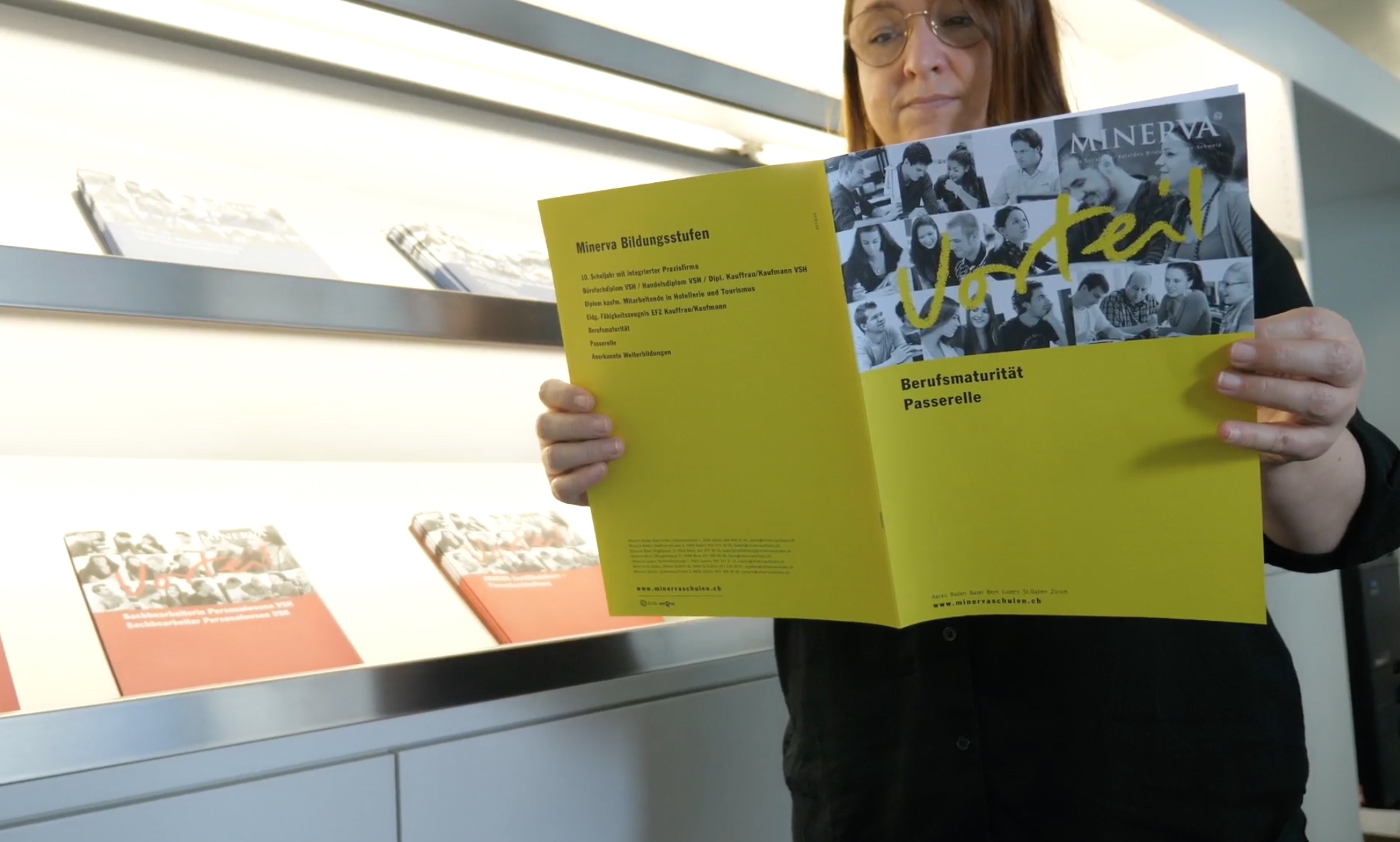
Why is the Passerelle necessary for later studies?
With the Passerelle, future university students should demonstrate that they have a broad general knowledge. On the other hand, graduates of the Passerelle should also demonstrate the ability to acquire and apply a lot of information in a short space of time. In many later degree courses, it is indeed the case that you will be surprised to suddenly need knowledge that you would not have expected. As a German studies student, I was also convinced that I would never need French again. Until a professor told me that we were in Switzerland and assumed that all students knew French. So I had to read and quote an original work in French. During your studies, you don't need the general knowledge you've learned as much, but later on you'll have a job and you'll be confronted with this general knowledge more often. Universities want to have students who have a broad general knowledge and can therefore think in a connected way and apply this knowledge.
What are the typical challenges on this second educational path?
Based on my experience, I think I can say that one of the biggest challenges during the Passerelle preparation period is certainly the amount of material to be learned and the effort required to learn this material. On the other hand, it is also dealing with pressure and fear of failure. There are only two chances for the Passerelle supplementary examination. Young people in particular, who have a dream behind this educational path that they want to realize, come to us with a lot of pressure and anxiety. They wonder what will happen if it doesn't work out. We at the Minerva School also try to support and coach the young people so that they learn to deal with the pressure and their own expectations. Which is certainly also good preparation for later university studies.
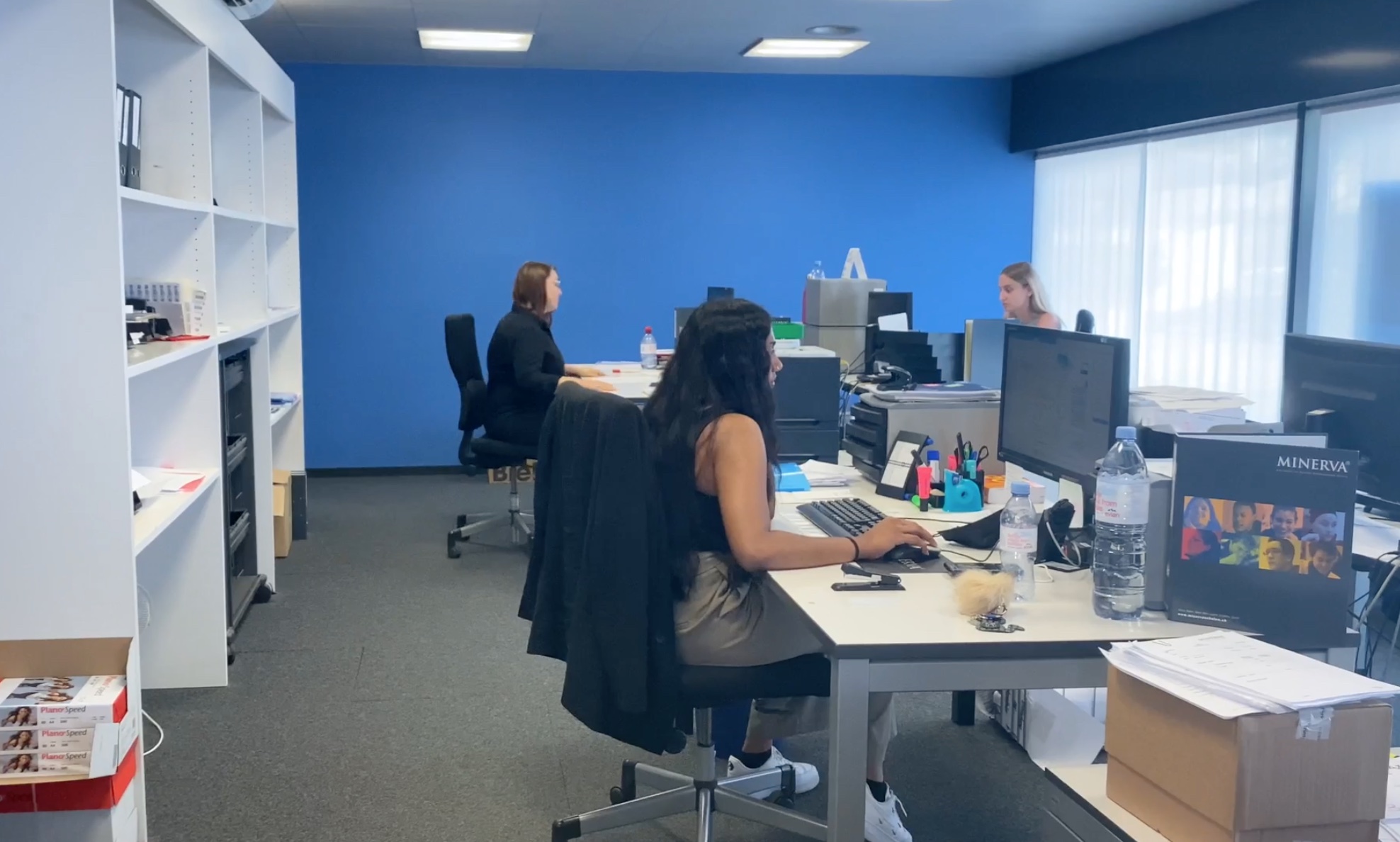
What makes Minerva innovative?
The Passerelle is very closely supervised by both the teachers and the course management. As the course director, I also teach this continuing education, further training course myself. This means that I am very close to our students and can support them well. I also recognize immediately if there are any problems. In such cases, I quickly seek a discussion in order to find good solutions. At Minerva, the supervisory relationship is very much in focus. This also happens through our coaching program for our passerelle. This is used as soon as we realize that a participant has a deficit in a subject from their previous education. In many cases, this deficit can be quickly addressed with coaching and the connection can be found so that participation in the normal program is possible again. This deliberately prevents individual students from falling behind.
What else does the Minerva School offer in connection with the Passerelle?
The Minerva School has many years of experience in preparing students for the Passerelle supplementary examination. Our team of teachers has already successfully accompanied and coached many year groups. We also work very closely with the commissions in order to quickly gather information about changes such as the curriculum adjustments in 2020. This allows us to make short-term adjustments to the planning of preparation for the Passerelle. Or we send our teachers to the SMK literature circle to select literature for the German literature exams. In this way, we try to stay very close to the examination board in order to obtain the best and latest information for our students and implement it in our curriculum.
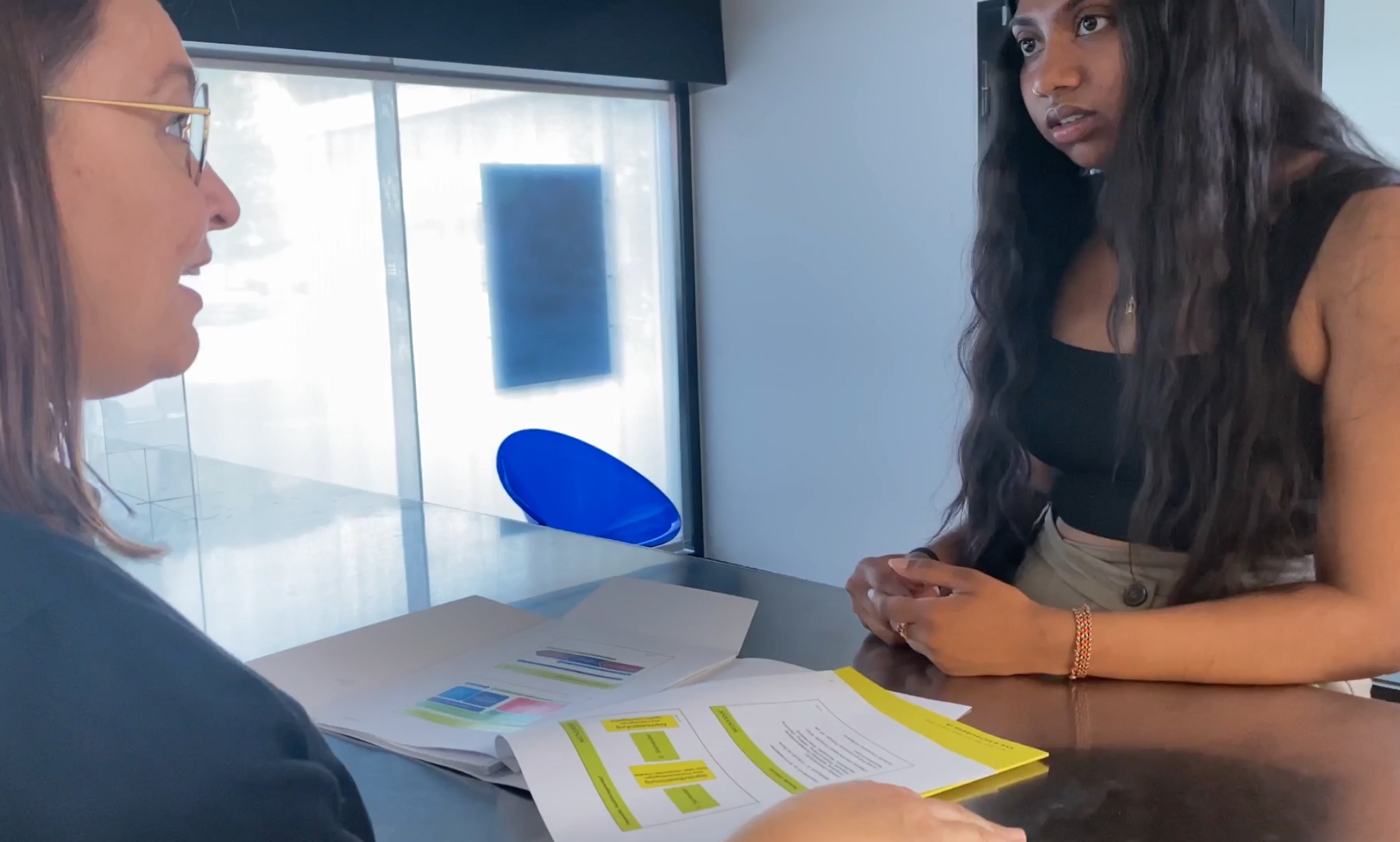
What makes the Minerva locations interesting for students?
At the Minerva School Zurich, we have the privilege of residing in a beautiful old building that has been a school for over 100 years. It is located in the center of Zurich in close proximity to the university, a 10-minute walk from the University of Zurich and FIT Zurich. This means that we can always encourage our participants in the preparatory course for the Passerelle exam to attend a lecture if they are still unsure about their choice of course. Minerva is also very centrally located in Basel, just a few minutes from the train station. Minerva Basel also offers a preparatory course for the Passerelle supplementary examination.
What do the different educational backgrounds and different prospective students mean for the Passerelle?
Many of our apprentices come to us from different educational backgrounds, such as Federal Vocational Baccalaureate in business, science or technology. Depending on their interests, they prepare for a course of study via the Passerelle supplementary examination - whether in the technical field, mathematics or history. I think this creates a nice tension in the class in terms of fields of interest and prior knowledge. This is also a first step towards networking for the future. During the Passerelle preparation course, you get to know people who don't do the same things as you, which will certainly be an enrichment in the future.
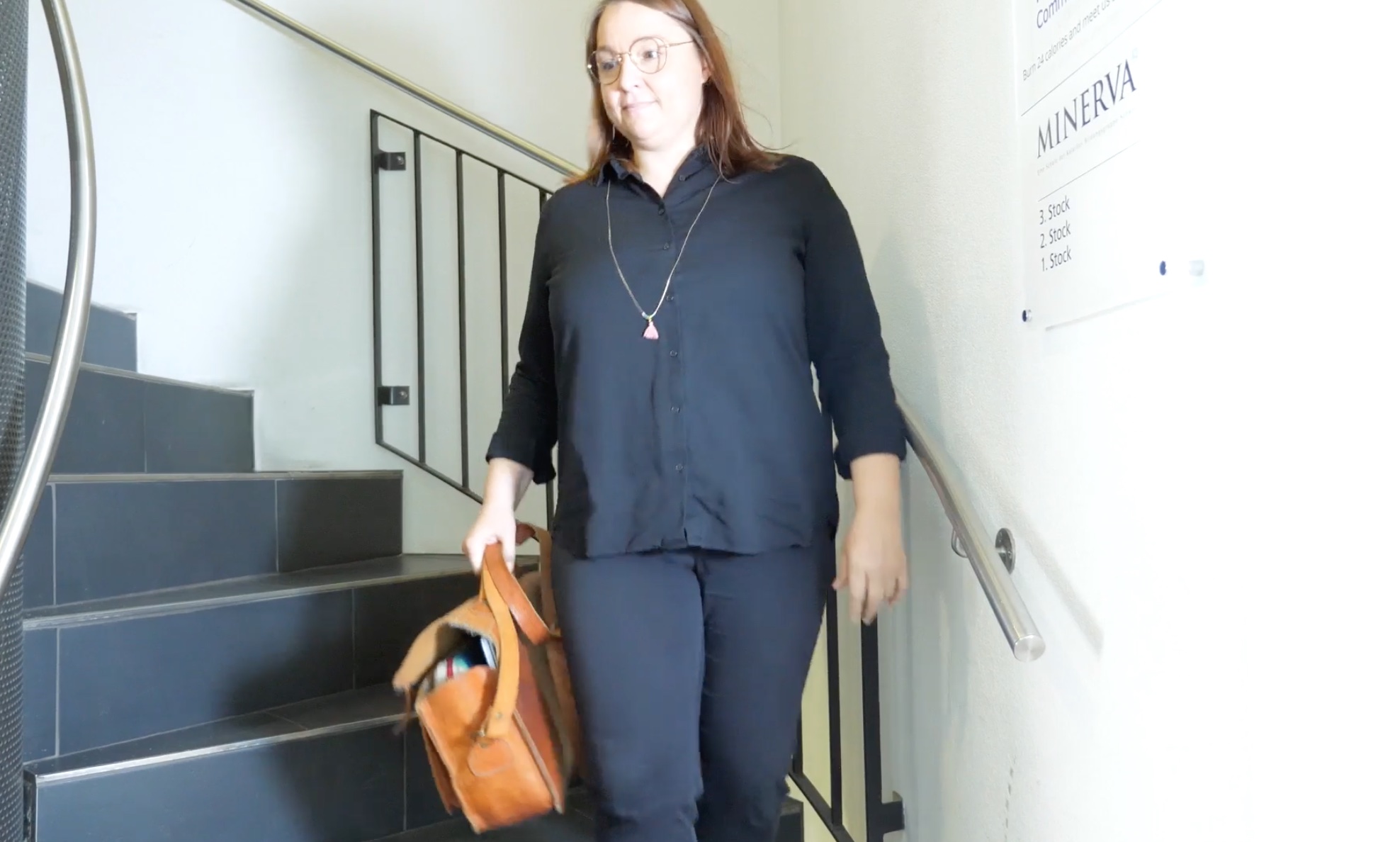
In your opinion, what are the advantages of the Passerelle as a second educational pathway?
What I like about the Passerelle path is that professionals can follow an academic path and that there are people in the academic world who come from a professional background. I often notice this in my own learning environment today. I come from an apprenticeship background and worked with adults from a very early age. As a result, professionals bring different skills, values and ideas with them via the passerelle route than people who have embarked on an academic career via grammar school as the normal route. I have the feeling that this is a great enrichment in many professions if the perspective from the traditional professions is also brought in. This benefits both sides. The advantage of Switzerland is the permeability of the Swiss Education System, which means that everyone has the opportunity for further development. The path is not always easy, but it can definitely be worthwhile. For example, a mechanic can become a doctor or a gardener can become a history professor.
Directly to providers "Passerelle supplementary examination preparation course"
